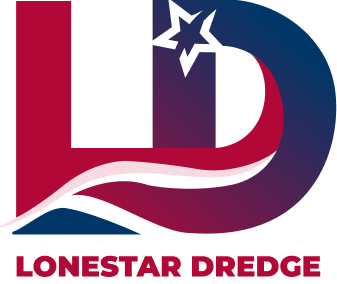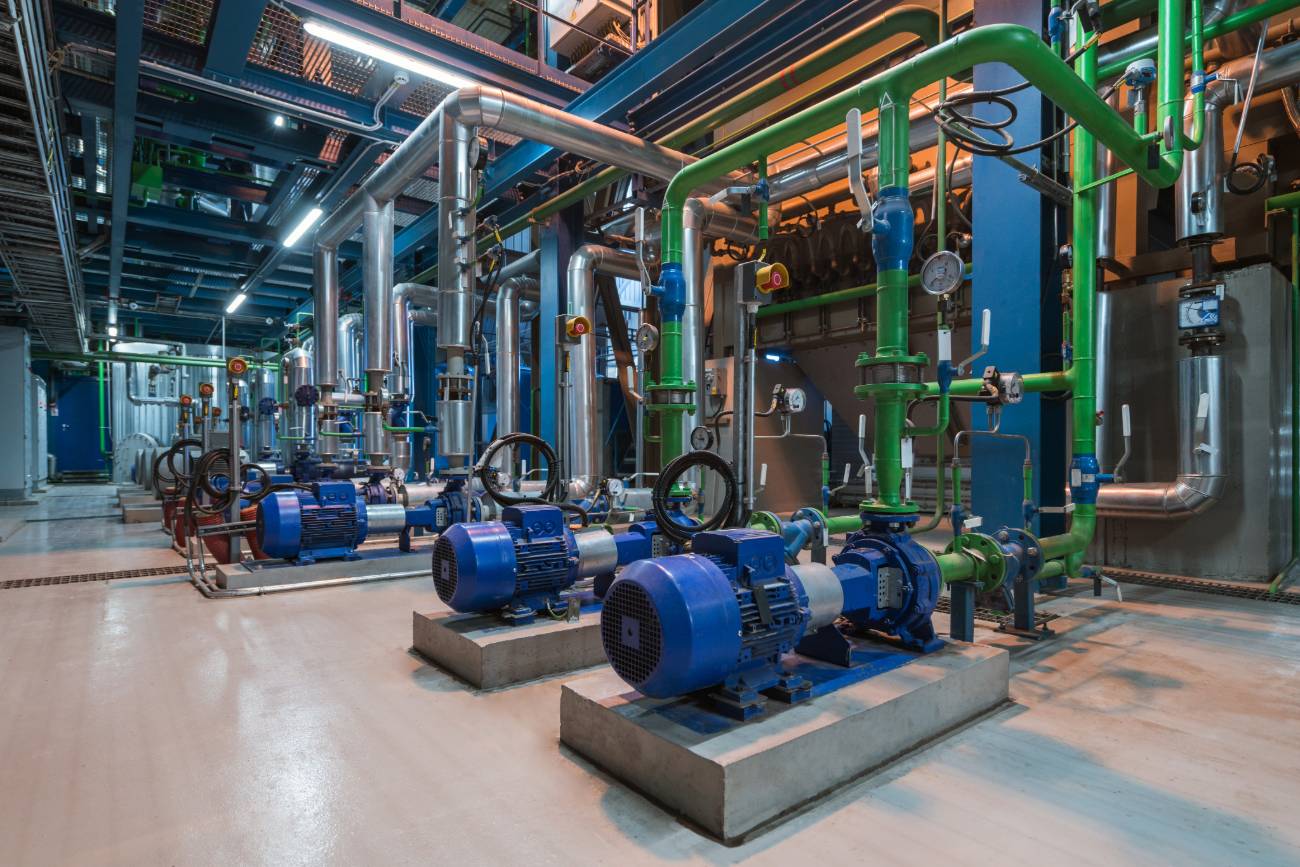Pumps play a critical role in a wide range of industrial and commercial applications, from moving water and slurry on construction sites to supporting dewatering, mining, and dredging operations. Whether it’s managing wastewater, controlling floodwater, or transferring abrasive slurries in remote environments, having the right pumping solution in place is essential for maintaining efficiency and safety. For many businesses, however, the decision to buy or rent pumps can have a significant impact on project budgets and long-term operational flexibility.
As capital equipment costs continue to rise, more companies are turning to industrial pump rental as a smarter, more cost-effective alternative to ownership. Instead of investing large sums upfront and taking on the responsibility of storage, maintenance, and eventual depreciation, renting offers a streamlined approach to accessing high-performance pumps on demand. This trend is gaining momentum not only in industrial settings but also in commercial pump rental markets, where businesses need quick, temporary solutions without a long-term commitment.
In this article, we’ll break down the financial and operational advantages of choosing industrial pump rental over purchasing. You’ll learn how pump rentals reduce overhead costs, improve scalability, minimize downtime, and offer access to specialized equipment, such as dredge pump rentals—all while maintaining project efficiency and performance.
Understanding Industrial Pump Rental
Industrial pump rental refers to the short-term or long-term leasing of heavy-duty pumping equipment for use in high-demand applications across a wide range of industries. Rather than purchasing pumps outright, companies can access specialized equipment as needed, allowing them to scale operations, control costs, and avoid the long-term financial commitment of ownership. These rental services typically include setup support, routine maintenance, and around-the-clock technical assistance, making them an efficient and hassle-free solution for temporary or emergency needs.
Many industries rely on pump rentals to keep operations running smoothly. Construction firms often use pumps for dewatering excavation sites, while mining operations depend on powerful systems to handle slurry and tailings transport. In dredging and marine applications, dredge pump rentals are essential for moving large volumes of sand, sludge, and silt during port maintenance or land reclamation projects. Municipal and utility sectors also rely on pump rentals for flood control, bypass pumping, and wastewater management during scheduled maintenance or emergency response.
Rental fleets typically include a variety of pump types to meet the demands of different applications, such as centrifugal pumps, submersible pumps, high-head pumps, and specialized slurry pumps. Among these, dredge pump rentals are in particularly high demand for their durability and ability to handle abrasive materials in harsh environments.
While industrial pump rental and commercial pump rental may seem similar, they serve different operational scales and requirements. Industrial pump rentals are designed for high-volume, heavy-duty use and are often found on large-scale infrastructure or energy projects. In contrast, commercial pump rental tends to focus on smaller-scale operations such as building maintenance, HVAC support, or localized water transfer, where pump capacity and durability requirements are less demanding.
Lower Upfront Capital Investment
One of the most compelling reasons to choose industrial pump rental over purchasing is the significant savings on upfront capital costs. High-capacity industrial pumps—especially those designed for heavy-duty tasks like slurry transfer or dewatering—can be a major financial investment. For businesses managing tight project budgets or fluctuating operational needs, purchasing such equipment outright often ties up valuable capital that could be allocated elsewhere.
With an industrial pump rental, companies gain immediate access to the equipment they need without the burden of large initial expenditures. This model is particularly beneficial for temporary projects, emergency response efforts, or seasonal work where owning a pump may not be financially justifiable. Instead of committing to a depreciating asset, businesses can conserve their capital and redirect funds toward core operations, staffing, or growth initiatives.
Additionally, pump rentals offer budget flexibility through pay-as-you-go models, allowing businesses to align costs with actual usage. Whether it’s a short-term commercial pump rental for building maintenance or an extended dredge pump rental for a large marine project, companies only pay for what they need, when they need it. This flexibility supports better cash flow management, reduces financial risk, and provides the freedom to scale equipment needs up or down as project requirements evolve.
Reduced Maintenance and Repair Expenses
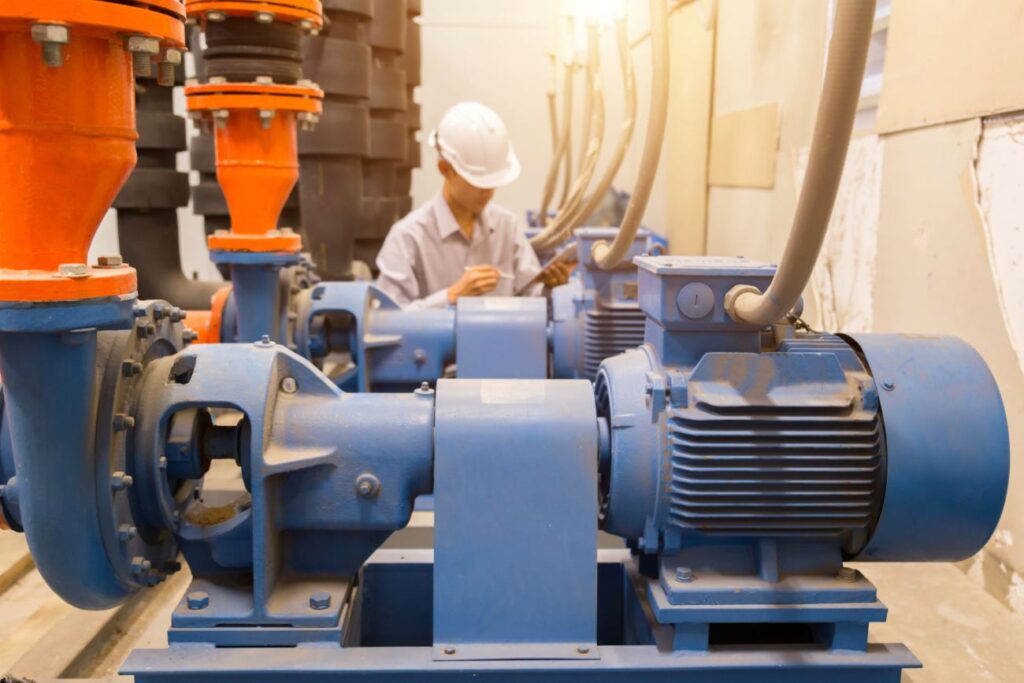
Another major advantage of choosing industrial pump rental over purchasing is the reduction in maintenance and repair-related expenses. Owning a high-performance pump comes with ongoing costs for routine servicing, replacement parts, labor, and unplanned breakdowns. These costs can quickly add up—especially in demanding environments where pumps operate under extreme conditions for extended periods.
When businesses opt for industrial pump rentals, the responsibility for maintenance and repair is typically handled by the rental provider. This means renters can avoid the logistical and financial burden of sourcing spare parts, scheduling service, and dealing with downtime caused by unexpected equipment failures. Most rental agreements also include 24/7 technical support, field service, and immediate equipment replacement if needed—minimizing disruption and keeping projects on schedule.
These benefits are particularly valuable in applications involving dredge pump rentals, where equipment must withstand abrasive materials, corrosive environments, and continuous use. In these harsh conditions, wear and tear are inevitable, but a rental model ensures pumps are properly serviced, tested, and ready for operation before every deployment.
Whether a company needs an industrial-grade dewatering pump for a construction site or a commercial pump rental for temporary HVAC support, the assurance of accessing well-maintained, fully operational equipment translates into fewer delays, lower overhead costs, and improved project reliability.
Equipment Access Without Long-Term Commitment
One of the key benefits of choosing industrial pump rental is the ability to access high-performance equipment without the burden of long-term ownership. Purchasing pumps outright ties up capital in a depreciating asset that may become obsolete or underutilized over time. As technology advances and project requirements shift, owned equipment can quickly lose value or fail to meet evolving operational demands.
By renting, businesses can avoid the pitfalls of depreciation and obsolescence while still gaining access to top-tier pumping solutions. Industrial pump rental allows companies to deploy equipment only when it’s needed—perfect for project-specific tasks, seasonal operations, or emergencies where quick deployment is critical. Rather than investing in equipment that may sit idle between jobs, organizations can align pump availability with actual demand, improving overall efficiency.
This model is particularly advantageous for dredge pump rentals, where equipment must often be tailored to very specific material types, flow rates, or site conditions. Instead of purchasing a specialized pump that may only be used occasionally, contractors can rent exactly what they need for the duration of the project and return it when the work is complete.
The same flexibility applies to commercial pump rental customers who may require short-term solutions for facility maintenance, construction support, or temporary water transfer needs. With no long-term commitment, rental options offer a scalable and risk-free way to manage fluctuating workloads without overextending budgets or resources.
Up-to-Date Technology and Performance
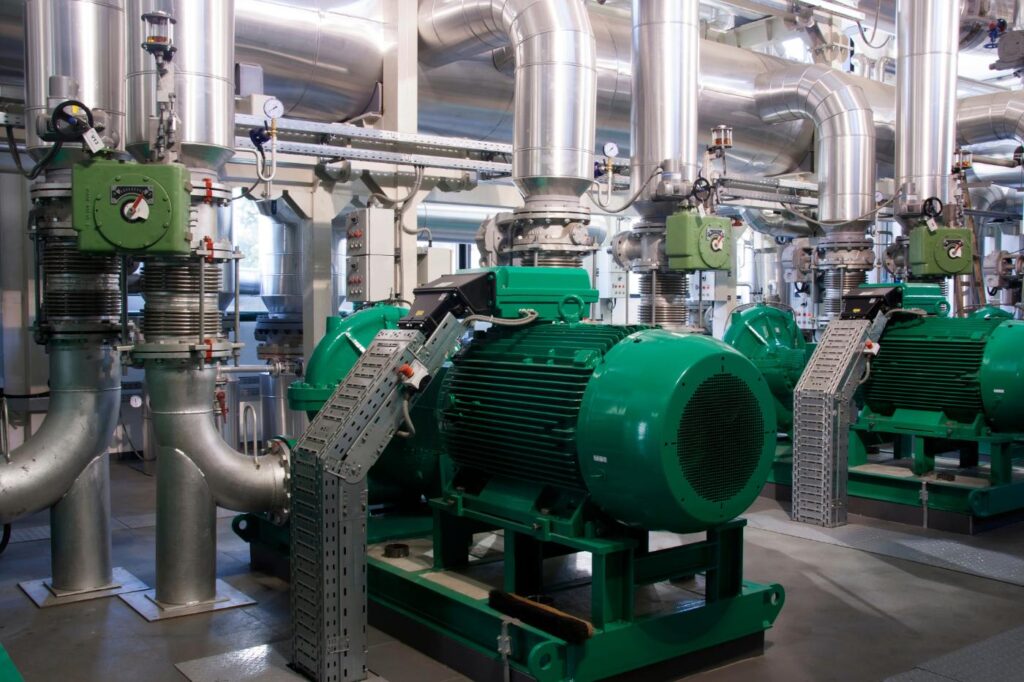
A major advantage of choosing industrial pump rental over ownership is immediate access to the latest pump technology without the need for a large upfront investment. Rental providers continuously update their fleets to meet evolving industry demands, which means businesses benefit from modern, high-efficiency pumps equipped with the newest features in control, performance, and environmental safety.
These updated models are often more energy-efficient, durable, and capable of handling higher volumes with less wear—key performance improvements that directly impact productivity and cost savings. Whether it’s advanced seal systems for abrasive materials or digital flow monitoring for precise output, rental-grade pumps often outperform older, purchased units still in operation. For businesses that rely on dredge pump rentals, this access to specialized, cutting-edge equipment is critical in harsh dredging environments where reliability and output consistency are non-negotiable.
In addition to operational advantages, industrial pump rental also supports compliance with tightening environmental regulations. Newer pumps in rental fleets are often designed with eco-friendly features, including lower emissions, improved containment, and reduced noise output—ensuring projects stay within regulatory limits without the need to upgrade or retrofit owned equipment.
This same benefit extends to commercial pump rental customers, who can use modern, well-maintained pumps for applications like construction dewatering or temporary municipal support, ensuring optimal performance and reduced environmental impact, even during short-term projects.
Logistics and Deployment Efficiency
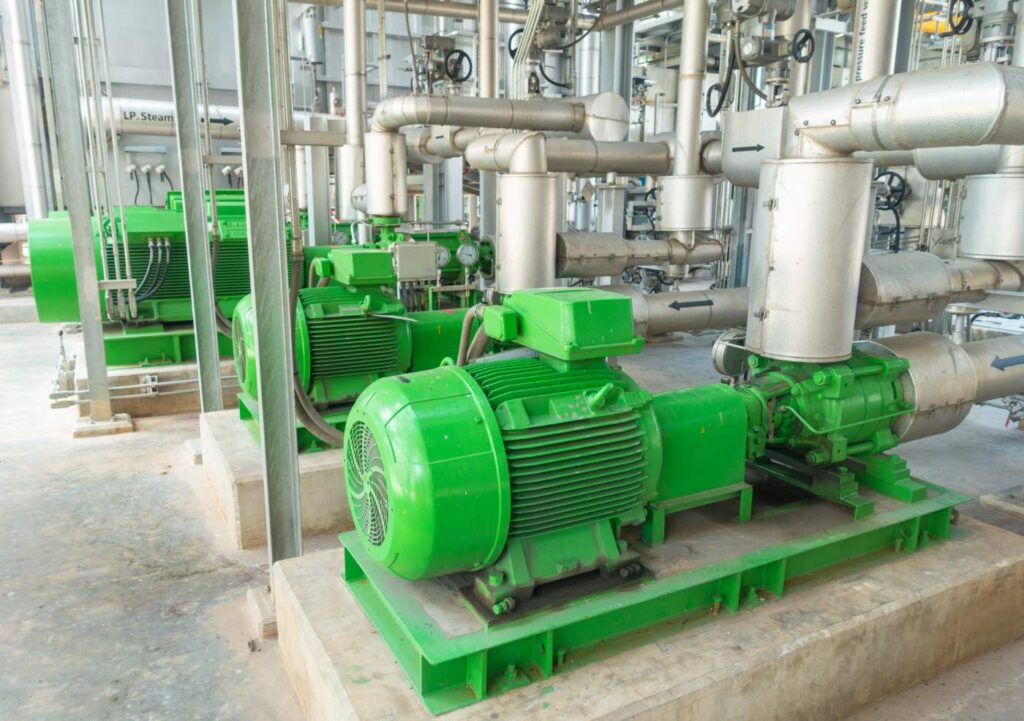
When time is of the essence, industrial pump rental offers a clear advantage by streamlining logistics and ensuring rapid equipment deployment. Instead of waiting weeks—or even months—for a purchased pump to arrive and be configured for the job site, rental providers offer fast access to a wide range of pumps that are ready to go. This quick turnaround is especially valuable for emergencies, project delays, or last-minute changes where immediate pumping capacity is critical.
Renting pumps also helps businesses avoid the lengthy procurement processes and lead times associated with equipment purchasing. With industrial pump rental, pumps can often be delivered, installed, and operational within days, minimizing downtime and helping projects stay on schedule. This speed is particularly beneficial in sectors like construction, mining, or dredging, where pump delays can halt operations and increase costs.
Most rental agreements include full-service logistics support, covering on-site delivery, installation, system integration, and final removal once the job is complete. Whether it’s a high-capacity unit for a remote mining site or a dredge pump rental for a coastal reclamation project, rental providers are equipped to handle transport, setup, and post-project teardown efficiently and safely.
The same convenience applies to commercial pump rental clients, who often need quick solutions for temporary dewatering, utility outages, or facility upgrades. With a rental partner managing deployment and logistics, teams can focus on operations without getting bogged down in equipment coordination or technical setup.
Scalable Solutions for Project Demands
One of the standout advantages of industrial pump rental is the ability to scale operations quickly and cost-effectively. Every job site has unique and evolving requirements, and renting allows businesses to adjust pump capacity, type, and configuration as those needs change—without the financial burden of buying additional equipment or being stuck with the wrong setup. Whether you’re increasing pumping volume to meet unexpected demand or downsizing after a peak period, rental inventory can be easily scaled to match the task.
This flexibility ensures that the right pump—both in terms of type and size—is always available for the specific application. Rental providers typically offer a wide selection of pumps, including centrifugal, submersible, and high-solid slurry units, so that customers can swap or upgrade equipment quickly as site conditions shift. This is especially important in applications like dredge pump rentals, where the material composition, flow rate, and discharge distance can vary significantly from one phase of the project to the next.
Commercial pump rental customers also benefit from scalable solutions, particularly in industries like construction or facility management, where timelines are tight and equipment needs can fluctuate weekly. Instead of overcommitting to a permanent solution, commercial clients can rent exactly what’s needed for the current workload—and then scale down just as easily when demand decreases.
With scalable industrial pump rental options, businesses gain operational agility, reduce wasteful overspending, and maintain peak efficiency throughout every stage of a project.
Reduced Storage and Transportation Costs
Choosing industrial pump rental doesn’t just reduce capital expenditures—it also eliminates the long-term costs and logistical headaches associated with storing and transporting large, heavy-duty equipment. When a pump is purchased outright, it requires dedicated space for secure storage when not in use, often taking up valuable room in warehouses or yards. Idle equipment can also lead to unnecessary wear, degradation, and maintenance needs, even when it’s not actively in operation.
With pump rentals, there’s no need to worry about off-season or post-project storage. Once the job is complete, the equipment is returned to the provider—freeing up space for critical operational tools and reducing overhead associated with maintaining unused assets. This is particularly beneficial in industries with limited storage capacity or rotating job sites where mobility is key.
Transportation is another area where rental delivers major cost savings. Most industrial pump rental agreements include logistics support, with the provider handling delivery, setup, and pickup. This not only streamlines project coordination but also reduces the need for specialized transport vehicles or personnel. Whether you’re mobilizing a dredge pump rental to a coastal site or coordinating a commercial pump rental for a downtown construction project, the logistics are handled for you—saving time and money while ensuring timely deployment.
By offloading both storage and transport responsibilities to the rental provider, businesses can operate more efficiently, minimize logistical complexity, and focus resources where they matter most.
Risk Mitigation and Operational Flexibility
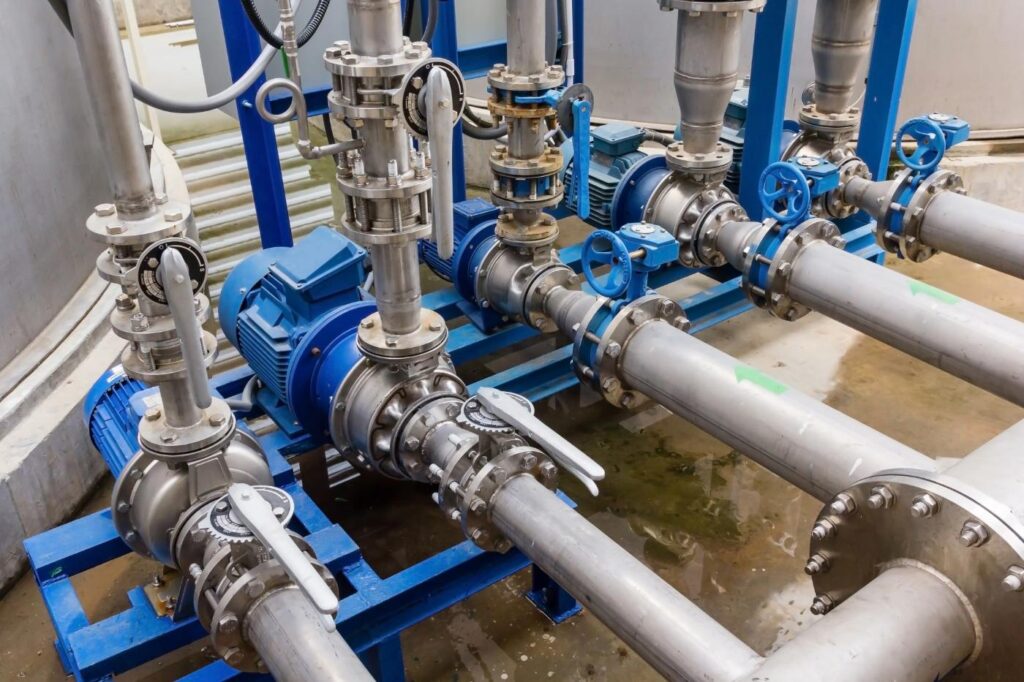
Opting for industrial pump rental is a strategic way to reduce financial risk while gaining greater adaptability across projects. Unlike ownership, which locks businesses into a long-term investment, rentals offer a low-risk alternative that avoids depreciation, high upfront costs, and ongoing maintenance responsibilities. This makes renting especially appealing for companies operating under tight budgets, variable timelines, or uncertain project scopes.
One of the most valuable aspects of industrial pump rental is the ability to try different pump models and configurations before committing to a purchase. This “try-before-you-buy” flexibility ensures that businesses can evaluate performance, compatibility, and efficiency under real-world conditions. Whether it’s a high-flow unit for a mining site or a specialized pump for abrasive slurry, rental options let you test the best solution for the job without the financial pressure of ownership.
This flexibility is particularly beneficial in industries where project requirements can shift rapidly. For example, dredge pump rentals allow contractors to quickly adapt to changing sediment conditions or capacity needs without having to invest in new equipment. Similarly, commercial pump rental customers can scale up or modify their pump selections based on shifting construction phases, seasonal workloads, or emergency response situations.
By renting instead of buying, businesses can pivot more easily, stay within budget, and make smarter, data-driven decisions about equipment usage—all while maintaining the performance and reliability needed to get the job done.
Conclusion
Choosing industrial pump rental over purchasing offers a wide range of cost-saving and operational advantages, from minimizing upfront capital investment and avoiding long-term maintenance costs to gaining access to the latest pump technology and scaling equipment as needed. Whether you’re managing short-term demands, responding to emergencies, or handling large-scale infrastructure projects, pump rentals provide the flexibility to adapt quickly and efficiently. With added benefits like reduced storage requirements, streamlined logistics, and the ability to trial equipment before committing, industrial pump rental, along with specialized services like dredge pump rentals and commercial pump rental, has become a smart, low-risk solution for businesses seeking reliability, performance, and financial efficiency.
